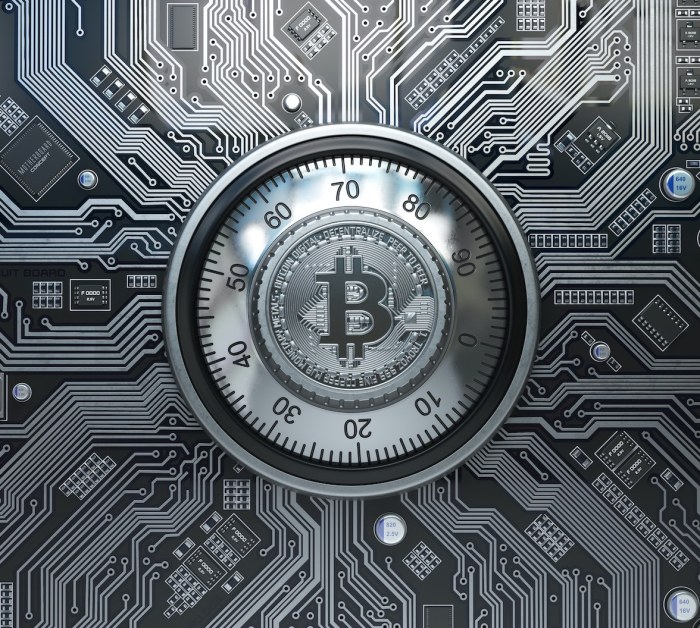Crypto and the Future of Digital Identity sets the stage for a groundbreaking exploration into the intersection of technology and security, promising a glimpse into the future of digital transactions.
As we delve deeper into the realms of blockchain and decentralized systems, the landscape of digital identity is undergoing a profound transformation, paving the way for a more secure and efficient crypto ecosystem.
Overview of Digital Identity in the Crypto World

In the world of cryptocurrency, digital identity refers to the unique digital identifiers that individuals or entities use to participate in transactions on the blockchain.
Digital Identity and Transactions
Digital identity plays a crucial role in shaping the future of transactions in the crypto space. It allows for secure and transparent verification of participants in a transaction, ensuring authenticity and trust.
- Blockchain technology enhances digital identity verification by creating a decentralized and immutable ledger of transactions. This ensures that all participant identities are securely recorded and verified.
- Smart contracts, a key feature of blockchain technology, enable self-executing agreements that automatically enforce the terms of a contract based on predefined rules. This further enhances the security and efficiency of transactions by reducing the need for intermediary verification.
- Examples such as decentralized finance (DeFi) platforms use digital identity verification to enable users to access financial services without the need for traditional identification processes. This opens up opportunities for financial inclusion and access to services for individuals who may not have traditional forms of identification.
Security Challenges and Solutions in Digital Identity for Crypto

Ensuring secure digital identity management in the crypto world is crucial to safeguarding sensitive information and preventing fraudulent activities. Let’s delve into the common security challenges faced in this realm and the innovative solutions being developed to address them.
Common Security Challenges
- Phishing Attacks: Cybercriminals often use deceptive tactics to trick individuals into revealing their private keys or personal information.
- Identity Theft: Hackers may steal identities to gain unauthorized access to crypto wallets and conduct fraudulent transactions.
- Malware and Ransomware: Malicious software can compromise digital identities and hold them for ransom, causing financial losses.
Innovative Solutions
Blockchain Technology: Utilizing blockchain for digital identity management ensures decentralized and tamper-proof record-keeping, enhancing security.
Multi-factor Authentication: Implementing multi-factor authentication adds an extra layer of security by requiring multiple forms of verification.
Biometric Authentication: Leveraging biometric data such as fingerprints or facial recognition enhances identity verification accuracy and security.
Importance of Secure Digital Identity Management
- Protecting Funds: Secure digital identity management helps prevent unauthorized access to crypto assets, safeguarding investments.
- Building Trust: Establishing robust security measures fosters trust among users and promotes wider adoption of cryptocurrencies.
- Compliance Requirements: Meeting regulatory standards for identity verification is essential to operate legally in the crypto ecosystem.
Decentralized Identity Systems and their Role in Crypto

Decentralized identity systems play a crucial role in the crypto landscape by offering users more control over their personal data and enhancing security and privacy.
Centralized vs. Decentralized Identity Systems
Centralized identity systems store user data in a single location controlled by a central authority, making them vulnerable to hacking and data breaches. On the other hand, decentralized identity systems distribute user data across a network of nodes, reducing the risk of a single point of failure and enhancing security and privacy.
- Decentralized identity systems offer users more control over their personal data, allowing them to choose what information to share and with whom.
- Centralized systems, on the other hand, often collect and store large amounts of user data, making them attractive targets for hackers and malicious actors.
- Decentralized identity platforms use cryptography and blockchain technology to ensure the integrity and security of user data, providing a more secure and private way to manage identities in the crypto world.
Impact of NFTs on Digital Identity Verification: Crypto And The Future Of Digital Identity
Non-Fungible Tokens (NFTs) are making waves in the realm of digital identity verification, offering a new paradigm for establishing unique and secure identities within the crypto world.
Revolutionizing Digital Identity Verification, Crypto and the Future of Digital Identity
NFTs have the potential to revolutionize digital identity verification by providing a tamper-proof and immutable record of ownership. Each NFT represents a unique digital asset, making it ideal for verifying identities in a decentralized and secure manner.
Establishing Unique Digital Identities in the Crypto World
Through the use of NFTs, individuals can create verifiable digital identities that are tied to their unique NFTs. This allows for a more personalized and secure way of authenticating identities, paving the way for innovative applications in various industries.
Challenges and Opportunities of Using NFTs for Digital Identity Authentication
While NFTs offer a promising solution for digital identity authentication, challenges such as scalability and interoperability need to be addressed. However, the opportunities presented by NFTs, such as enhancing privacy and security, far outweigh the challenges, opening up new possibilities for digital identity verification.

